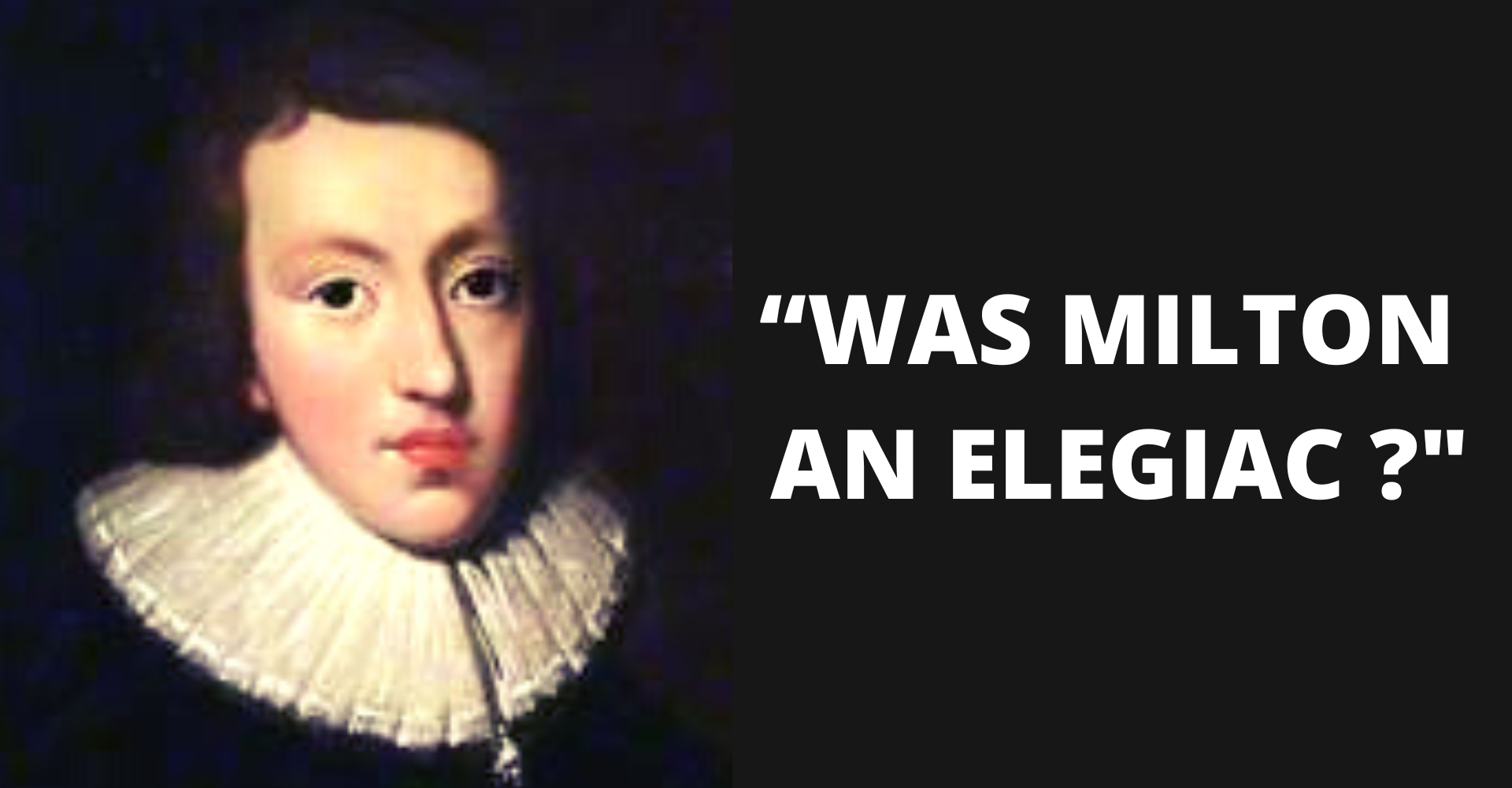John Milton :
Next great elegiac poet is John Milton. His pastoral elegy Lycidas is one of the greatest elegies in the English language. He wrote it to mourn the death of his college friend Edward King. The poet and his friend are represented as two shepherds, grazing their flocks and playing on their oaten pipes. But Milton was never very intimate with Edward King and soon he passes on to a consideration of the evils of his age and the corrupt elegy of the day are fiercely denounced, and he finds consolation in the fact that regeneration and reformation is near at hand. Dr. Johnson criticised it for its use of the artificial pastoral convention and imagery, and for its mingling of the Christian and heathen mythologies , but as Legoul points out, “The two hundred lines of Lycidas are among the most precious treasures of English poetry. Their pastoral dress is out of date and they abound in mythological allusions. There is religious satire in them as in Spenser’s Eclogues and they are not eminent for simple pathos. They have a very powerful but a special fragrance which cannot be appreciated without some initiation. It is not King but Milton who should be sought in them. The death of this friend, who was so young, and whose future promised so much, led Milton to reflect on his own life”.
Thomas Gray :
Milton’s was an inspiring example, but the Augustans were devoted wholly to the Heroic couplet, and hence the elegy suffered decline during the Augustan era. Next great name to be considered is that of Thomas Gray. He is elegy “Written in a Country Churchyard” is the masterpiece of the It Penserose school and one of the finest elegies of the world. The poem begins with the creation of the evening atmosphere of gloom and melancholy, suitable to an elegy. The poet sits alone in the village church yard. The darkness is increasing all round and the cattle are returning home for rest. The curfew has tolled, thus indicating the end of the day’s business. The owl, that bird of ill omen, is then brought in. The place and the hour conspiring to work their effect be mind of the poet, and his thoughts naturally turns to reflect on the story of the “rude forefathers of the Hamlet” buried in the Churchyard. They all no longer enjoy the beauty of the early morning and they will no longer return home to be welcomed by their wife and children.
Their joys were homely, and their destiny obscure. They could have achieved much, they had capacities of no mean order, but alas ! opportunity was denied to them. They were poor and so could get no education. But it must be remembered that death is a great leveller, the rich and the poor all have the same end and says the poet. “The paths of glory lead but to the grove. “Moreover, if they could not become great, say like Cromwell, they were also prevented from committing great crimes; they were also free from the worries which plague great men. The poet finds much consolation in the thoughts.
In the end, the poet thinks of his own self. He gives his own Epitaph which has been called, “the only false note in an otherwise perfect poem”. A note of deep melancholy and broad humanity runs throughout The Elegy from the beginning to the end : it begins as a general elegy on the fate of mankind, but ends on a personal note. Its popularity has been lasting, and its influence was immediate. Gray was widely imitated and the churchyard school of poetry of the mid 18th century owes its inspiration to him.











